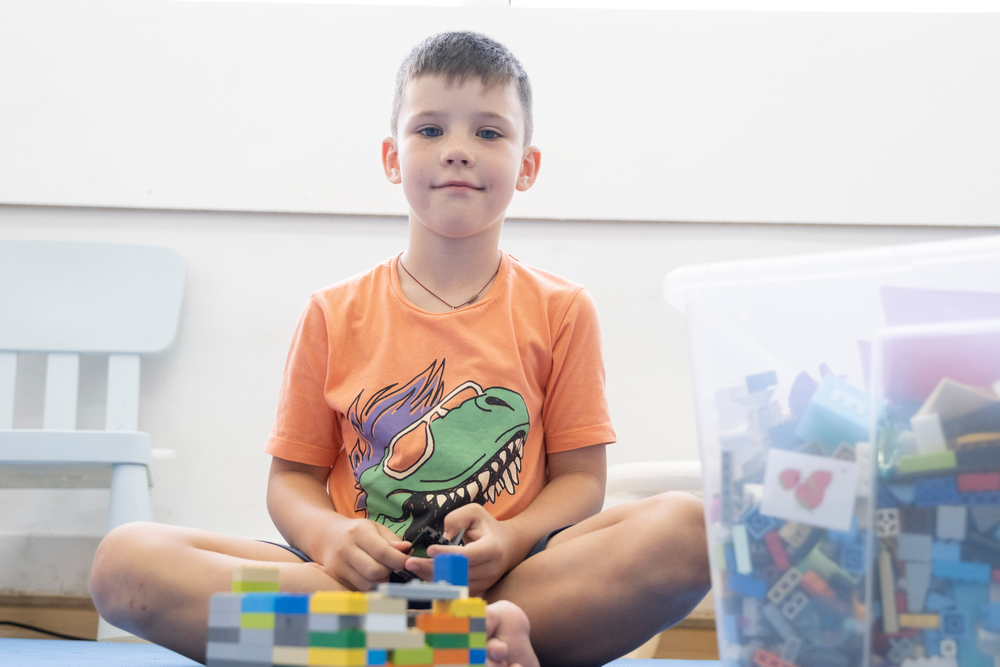
Schools shutdown adds to misery for children trapped in Greek islands refugee camps
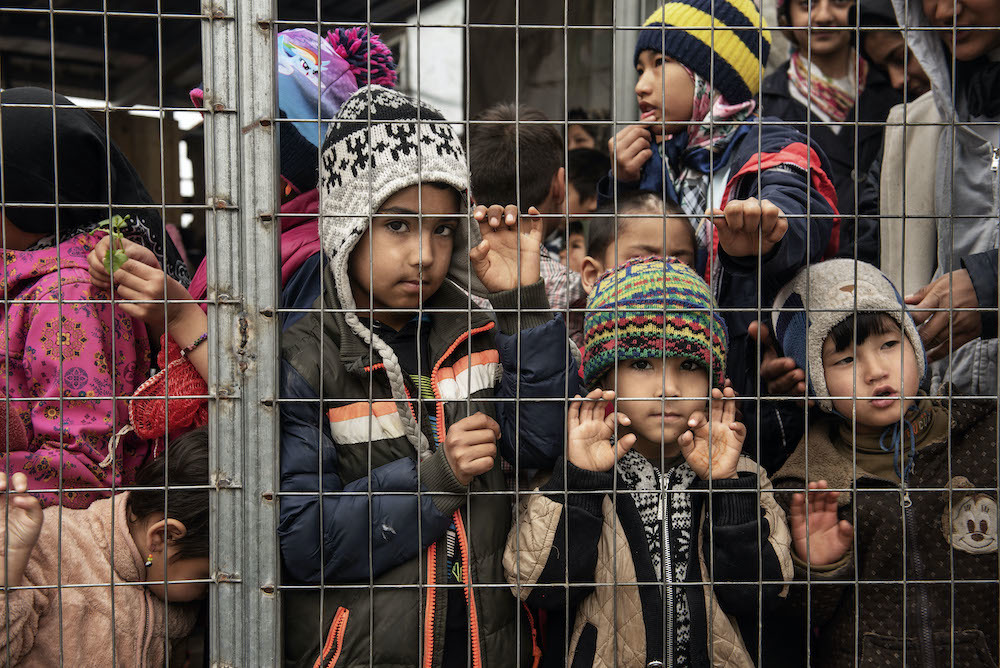
Education in emergencies, Refugees and internally displaced people
Theirworld has supported informal classes for young migrants - now the challenge is how to provide remote learning during the health crisis.
It’s hard enough for school children around the world who are trying to take lessons at home under coronavirus lockdown. But it’s a massive challenge for young migrants trapped in the cramped Moria refugee camp in Greece.
The site on the island of Lesvos has capacity for 2,800 people. But about 20,000 are squeezed in – including a large number of unaccompanied children and adolescents.
Conditions are dire and basic essentials like water and soap – so vital in the current pandemic – are in short supply. So are the digital tools needed to access the remote learning being put in place. Many children don’t have a smartphone or computer and wifi access is patchy.
“Around 3,000 refugee and migrant children of school age on the Aegean Islands had access to non-formal education – and now none of them do because of Covid-19 social distancing guidelines,” said Naoko Imoto, who is Chief of Education at the UNICEF Partnership Office in Greece.
The situation for children at Moria had been improving until the global coronavirus outbreak swept through Europe. Theirworld and Education Cannot Wait – the fund for education in emergencies – were helping UNICEF, UNHCR and partner organisations to send thousands of girls and boys to non-formal school classes on the Greek Aegean islands.
Earlier this year, Theirworld expanded its support, helping the Tapuat Centre near the Moria camp to refurbish a building and provide non-formal education to 420 children and early childhood education to another 60.
The children from Moria had to travel to the learning centre by bus. But with nationwide movement restrictions and closures due to the outbreak, the Tapuat Centre has been closed.
They are eager to learn. So it's vital that we continue to provide learning for them during this crisis. Justin van Fleet, President of Theirworld
“We are going to reach out to all children who were accessing the centre with remote lessons and educational materials,” said Imoto. “But this is still in the very early stages because the situation is really dire.”
Theirworld will be publishing a major report soon on solutions to Greece’s refugee education crisis. Theirworld President Justin van Fleet – who has visited reception camps on the Greek islands – said: “When you see the children who are in the education centres, their eyes light up. They are eager to learn. So it’s vital that we continue to provide learning for them during this crisis – and beyond.”
While restoring education is a priority, the threat of a coronavirus outbreak in the camp is a huge worry.
“The social distancing measures cannot be applied practically in the camp because people have to queue for food distribution and water is limited,” explained Imoto. “UNICEF is providing hygiene kits and health teams are trying to identify any persons with symptoms.”
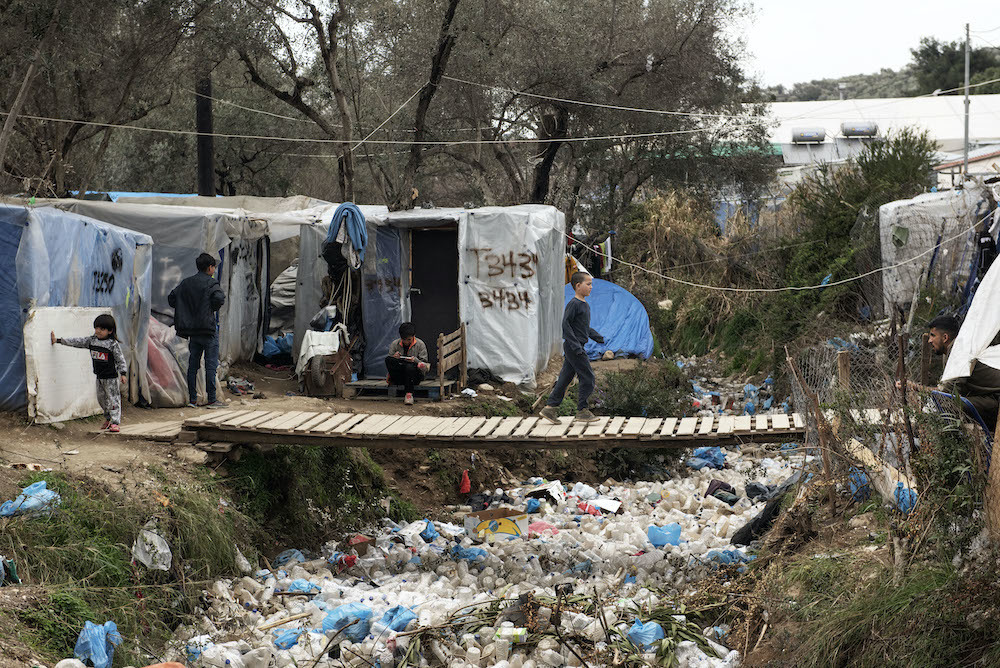
A boy walks across a bridge over a creek filled with plastic debris at the Moria camp (UNICEF / Alessio Romenzi)
More than 20 humanitarian organisations – including Human Rights Watch, Amnesty International and International Rescue Committee – called this week on the Greek government to reduce the congestion in Moria and other island camps by relocating the most vulnerable to the mainland.
Médecins Sans Frontières went further by calling for their urgent evacuation. Dr. Hilde Vochten, MSF’s medical coordinator in Greece, said: “It would be impossible to contain an outbreak in such camp settings in Lesvos, Chios, Samos, Leros and Kos. We have not seen a credible emergency plan to protect and treat people living there.”
Reports yesterday said 11 children will be flown from Lesvos and Chios to Luxembourg next week, as the first part of a European Union migrant relocation scheme.
The coronavirus outbreak in Greece saw the government announce the closure of all schools on March 10. That included the non-formal schooling of refugee and migrant children in camps on the islands and main urban centres.
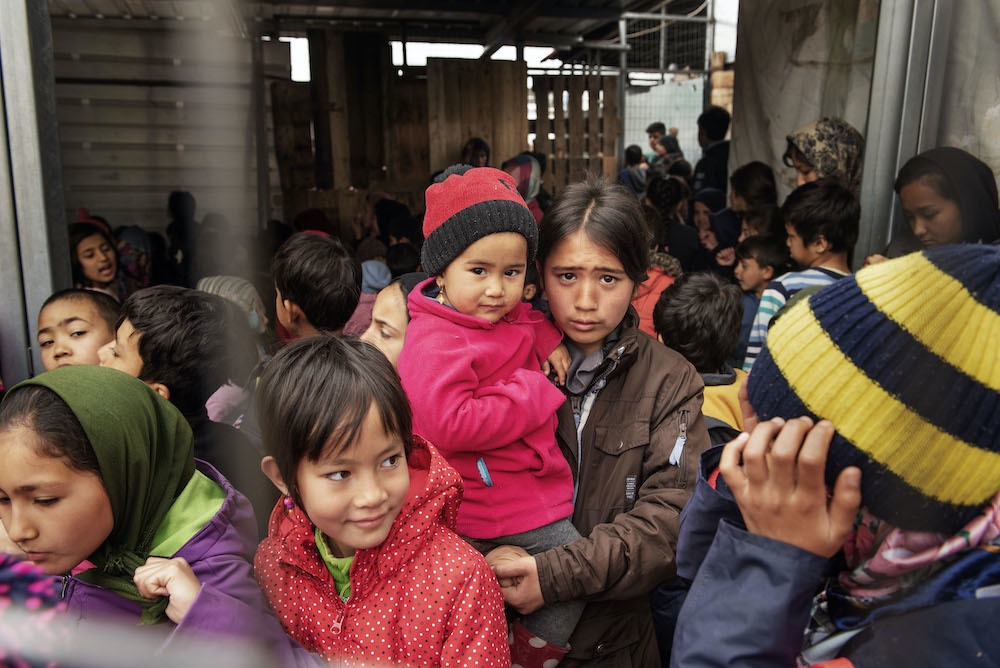
Children at the Moria camp line up to get fruit juice (UNICEF / Alessio Romenzi)
Only about 40% of the country’s refugee children are enrolled in formal schools – and only 3% on the islands.
Imoto said: “In the mainland camps, where we have access we provide homework support activities once a week through printed materials. But on the islands and urban settings, reaching out to children and families is very challenging.
“UNICEF, in collaboration with partners, is also providing remote learning support without having physical contact with children or caregivers. We are doing this through podcast lessons which are tailor-made for them. This gives children some kind of routine and allows them to be in touch with their teachers.
“The problem is the lack of connectivity and electronic devices. The only feasible option for many children is to use their parents’ smartphones. They have some access to the internet but wifi connectivity is very limited.”
We have a serious problem in Moria, as we can't even wash our hands. The water comes three, maybe four times a day, for just 10 minutes. Please help us! Mother-of-four from Afghanistan
A few days ago, UNICEF and local partners – through funding from Education Cannot Wait and Theirworld – began using WhatsApp to allow teachers to communicate with students and their parents. Those who can get connected will receive information, as well as psychosocial and remote learning support.
The only children who can physically be reached right now are those housed in Moria’s “Safe Area” for unaccompanied children.
“UNICEF and partners still have access to them and can provide more individual lessons. This is more old-fashioned delivery of printed materials,” said Imoto.
Despite all the hard work to reach as many children and youth as possible, there are reports of unaccompanied young people turning to alcohol and drugs.
“The situation in general is very, very difficult for these children,” said Imoto. “Children are very often exposed to physical and substance abuse and with Covid-19 restrictions such issues are of course exacerbated.
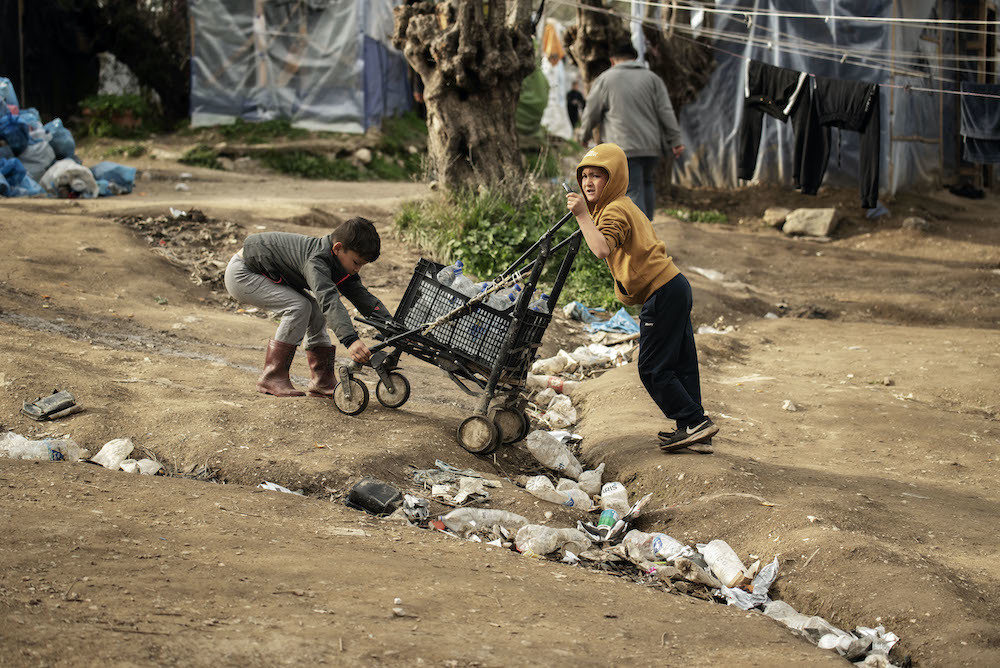
Children at Moria struggle to push a trolley full of bottles of water (UNICEF / Alessio Romenzi)
“They are stuck in camps and reception centres without any activities or much access to information. Children and families living under these conditions, and especially unaccompanied children, are witnessing tremendous adversity right now.”
An unaccompanied 16-year-old from Afghanistan told UNICEF’s partner organisation Iliaktida: “In recent days, a dispute has erupted between different tribes.
“There is a great deal of fear in the community about whether you belong to one race or another – there are people who constantly threaten to attack us at night with knives and kill us.”
The United Nations refugee agency UNHCR said the schools shutdown in Greece is extended until May 10 at the earliest. A spokesperson said: “As a result, UNHCR in cooperation with its partners, has put in place alternative modalities to support children’s learning.
“Children previously attending the UNHCR educational centres on the islands of Lesvos, Chios, Samos, Kos and Leros, now receive a package with self-learning material based on their level and age which they can do where they are staying.”
More news

